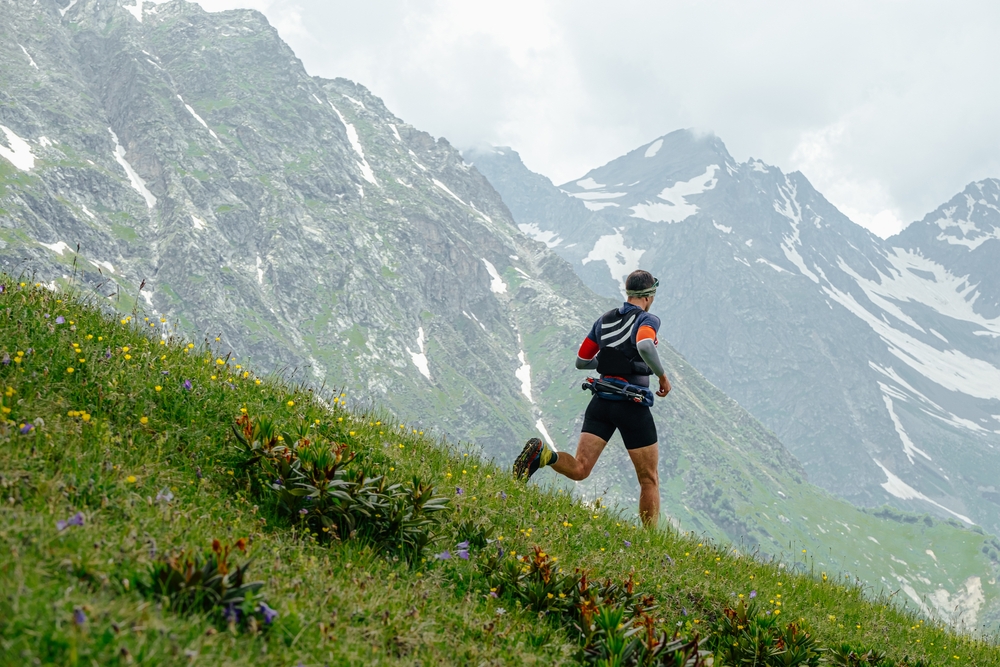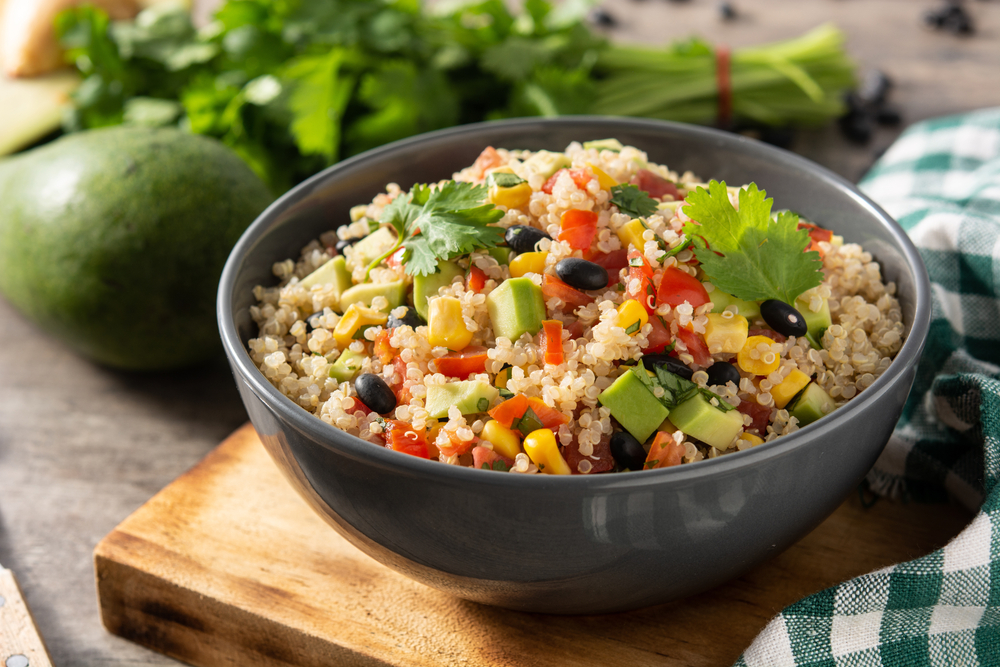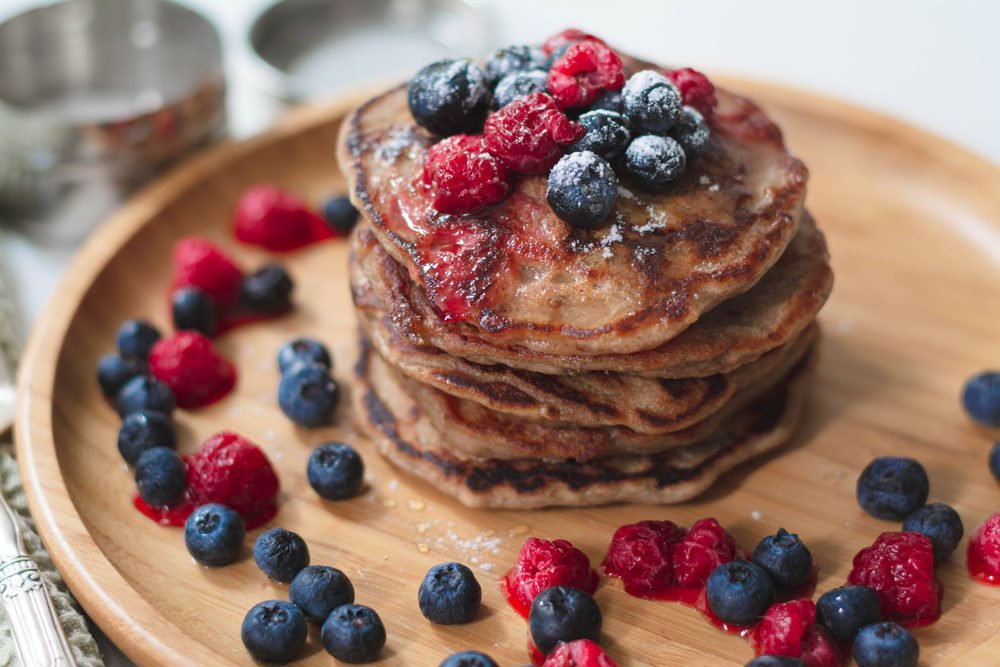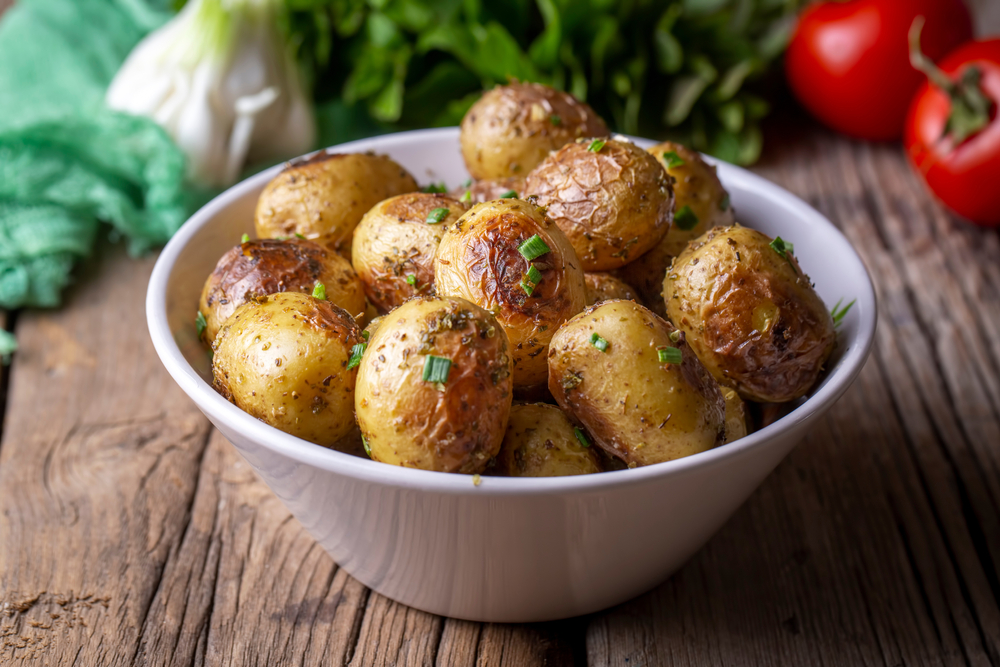Running an ultramarathon is no small feat. Whether you’re aiming to complete your first 50K or you’re a seasoned 100-mile competitor, ultramarathon nutrition plays a critical role in your performance and recovery.
As a sports dietitian, I’ve helped many ultramarathoners fuel their bodies for the demands being putting on them during training and on race day.
This ultramarathon nutrition guide will delve into the essential nutrition strategies you need to focus on to chase down your A-goal, including specific meals and snacks that can fuel your journey.

Understanding the Nutritional Demands of Ultramarathons
The Basics of Ultramarathon Nutrition
Ultramarathons, which are races longer than the standard marathon distance of 26.2 miles, place enormous demands on your body. These events require sustained energy, efficient fueling, and strategic hydration. The key components to focus on are:
- Carbohydrates: Your primary source of energy.
- Proteins: Essential for muscle repair and recovery.
- Fats: Important for long-term energy during extended efforts.
- Hydration and Electrolytes: Critical for maintaining fluid balance and preventing dehydration.
Pre-Race Nutrition: Laying the Groundwork

In the weeks leading up to your ultramarathon, your nutritional focus should be on building your energy reserves, optimizing muscle repair, and ensuring overall health.
Here’s how you might structure your diet:
Carbohydrates
Carbohydrates are your main fuel source, essential for building glycogen stores in your muscles and liver. Aim for 3-10 grams of carbohydrates per kilogram of body weight per day.
- Examples:
- Breakfast: Oatmeal topped with fresh berries, honey, and a sprinkle of chia seeds.
- Lunch: Quinoa bowl with black beans, corn, avocado, and a lime-cilantro dressing.
- Dinner: Whole-grain pasta with marinara sauce, grilled chicken, and a side of steamed broccoli.
Protein
Protein is vital for muscle repair and growth, especially as you increase your training intensity. Aim for 1.6-2.2 grams of protein per kilogram of body weight per day.
- Examples:
- Breakfast: Greek yogurt parfait with granola and mixed fruits.
- Lunch: Turkey wrap with avocado, lettuce, and whole-grain tortilla.
Dinner: Baked salmon with a side of quinoa and roasted vegetables.
The Day Before the Race

The day before your ultramarathon, prioritize easily digestible, high-carbohydrate foods to maximize glycogen stores without overloading your digestive system.
- Breakfast: Pancakes with fresh fruit and a touch of maple syrup.
- Lunch: Rice bowl with grilled chicken, a few steamed veggies, and soy sauce.
Dinner: Chicken and pasta with a red sauce.
Race Morning
On race morning, consume a high-carbohydrate, low-fiber meal 3-4 hours before the start to top off your glycogen stores and ensure you’re well-hydrated.Example Meal: Bagel with almond butter and a banana, accompanied by a sports drink.
During the Race: Maintaining Steady Energy and Hydration
The Importance of Fueling During an Ultramarathon

During an ultramarathon, sustaining energy levels and preventing dehydration are paramount. This requires a strategic approach to both eating and drinking throughout the race.
Carbohydrates
Aim to consume 30-90 grams of carbohydrates per hour, adjusted based on your intensity and duration.
- Examples:
- Energy Gels: Convenient and quick to digest.
- Sports Drinks: Provide both fluids and carbohydrates.
- Baby Potatoes: A natural source of carbohydrates and potassium
Protein
Including small amounts of protein can help prevent muscle breakdown during long races.
- Examples:
- Peanut Butter Wrap: Easy to carry and offers a balance of carbs and protein.
- Recovery Mix: An easy to mix and digest source of carbs and protein
Hydration and Electrolytes
Proper hydration is critical to prevent dehydration and maintain electrolyte balance. Aim to drink 500-750 ml of fluid per hour, adjusted based on your sweat rate and weather conditions.
- Examples:
- Sports Drinks: Ensure you’re also getting electrolytes to prevent cramping
- Electrolyte Tablets: A convenient way to supplement electrolytes
Post-Race Nutrition: Aiding Recovery
Immediate Recovery (0-30 minutes post-race)
Immediately after finishing, focus on rehydration and replenishing glycogen stores with a combination of carbohydrates and protein.
- Recovery Shake: Blend banana, Greek yogurt, almond milk, and a scoop of protein powder.
- Sports Drink: Helps replenish electrolytes and provides quick carbs.
The First Few Hours
In the hours following your race, continue to eat balanced meals to support muscle repair and recovery.
- Examples:
- Meal: Grilled chicken wrap with plenty of vegetables and a whole-grain tortilla.
- Snack: Crackers with peanut butter.
The Next Few Days
Continue to eat balanced meals with a focus on replenishing glycogen stores and repairing muscles.
- Examples:
- Breakfast: Whole-grain toast with scrambled eggs and avocado.
- Lunch: Brown rice bowl with lean beef, black beans, and salsa.
- Dinner: Baked salmon with sweet potatoes and a side salad.
Follow This Ultrarunning Nutrition Guide to Prepare for Your Next Big Race
Fueling for an ultramarathon involves more than just what you eat on race day. It’s a continuous process that starts weeks in advance and continues through recovery.
By focusing on the right foods and macronutrient ranges, you can optimize your performance and recovery, helping you chase down your A-goal.
Remember, every athlete is unique, so it’s crucial to tailor these guidelines to your individual needs and preferences. Working with a sports dietitian can provide personalized strategies to help you conquer the challenges of ultramarathon running and achieve your dreams.You can join me in the Flight Collective, a sports nutrition membership just for endurance athletes! We have many Ironman finishers in the group for you to connect with, and I’m in there daily answering your nutrition questions to ensure you feel your best on race day!
Be The First To Comment